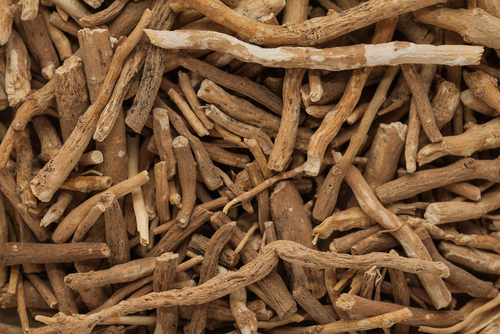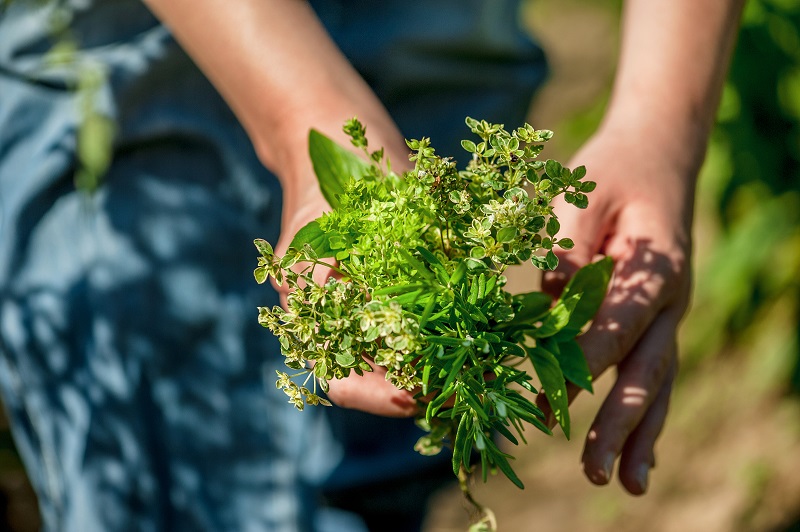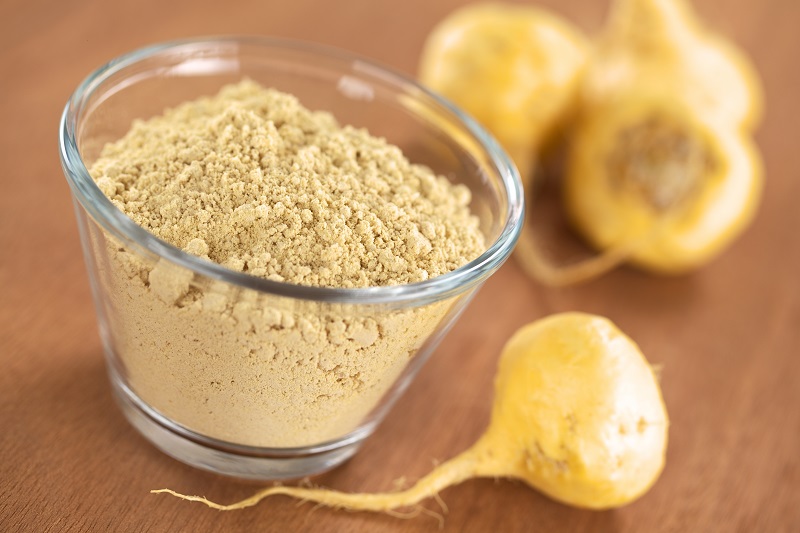Our white label Ashwagandha extract is a turnkey solution for wellness brands ready to launch a best-selling adaptogen without the R&D overhead. We deliver this ancient herb in a shelf-ready, 2oz format; your branding, our formulation, with a six-week turnaround and flexible MOQs starting at just 1,000 units.
- Alcohol-free, dual-extracted formula
- Certified GMP and organic process
- Includes label application, FP testing, and Certificate of Analysis
What is Ashwagandha?
Ashwagandha (Withania somnifera), also called Indian ginseng or winter cherry, is one of the most widely used herbs in Ayurvedic medicine, with a history dating back 3,000 years. Traditionally used to promote both energy and restful sleep, it’s considered an adaptogen; a botanical that helps the body respond to physical, emotional, and environmental stress.
The name “ashwagandha” comes from Sanskrit, roughly translating to “smell of a horse,” a reference to the root’s distinct aroma and its reputation for enhancing stamina and vitality. The Latin species name “somnifera” means “sleep-inducing,” highlighting the herb’s dual role in energizing and calming the body.
Why Choose Ashwagandha Extract?
We use a dual-phase extraction process to preserve the full spectrum of active compounds found in Ashwagandha root; including withanolides and alkaloids. Gentle heat and organic flax glycerin ensure a clean, bioavailable liquid without degrading the plant’s potency.
Key Benefits:
- Adaptogenic support for stress and mood balance
- Traditionally used for immune, nervous, and circulatory health
- Clean, alcohol-free, additive-free delivery
- Preserved in organic, sustainable flax glycerin
Ashwagandha may have GABA-like effects. Clients marketing this product should advise consumers to consult a healthcare provider, especially if using sedatives, anticonvulsants, or if they have hormone-sensitive conditions.
Why White Label Manufacturing?
White labeling lets your brand move fast without the time and cost of R&D. Our proven formulas are shelf-ready, fully compliant, and backed by years of performance in the market. You focus on branding and sales; we handle formulation and testing.
Key Benefits:
- Speed-to-market with a retail-ready product
- No formulation or compliance guesswork
- Scalable production with low MOQs
- Trusted efficacy from pre-vetted ingredients
- Full support with label design, bottling, and documentation
White label liquid manufacturing is ideal for wellness brands looking to expand SKUs or test new markets with minimized risk and maximum quality.
Want to Customize?
Interested in modifying the flavor or formula? We offer custom ingredient blends and additional packaging formats starting at 5,000 units. Our R&D and production teams are ready to bring your concept to the shelf.
Launch Your White Label Ashwagandha Product with Yellow Emperor
With over 40 years in liquid manufacturing, Yellow Emperor combines botanical precision with modern scalability. You get full transparency and certified GMP production; all backed by a high-touch team that understands your goals.
Request a quote today and launch with a partner that delivers more than just product; we deliver reliability.
Sources
1 – Withania somnifera – Wikipedia
2 – Ashwagandha (Withania somnifera) Botanical Sheet | The Medicine Hunter
3 – Ashwagandha – The Medicine Hunter
4 – Ashwagandha | Memorial Sloan Kettering Cancer Center
5 – Ashwagandha Benefits: What Can It Really Do for You? | Men’s Health







